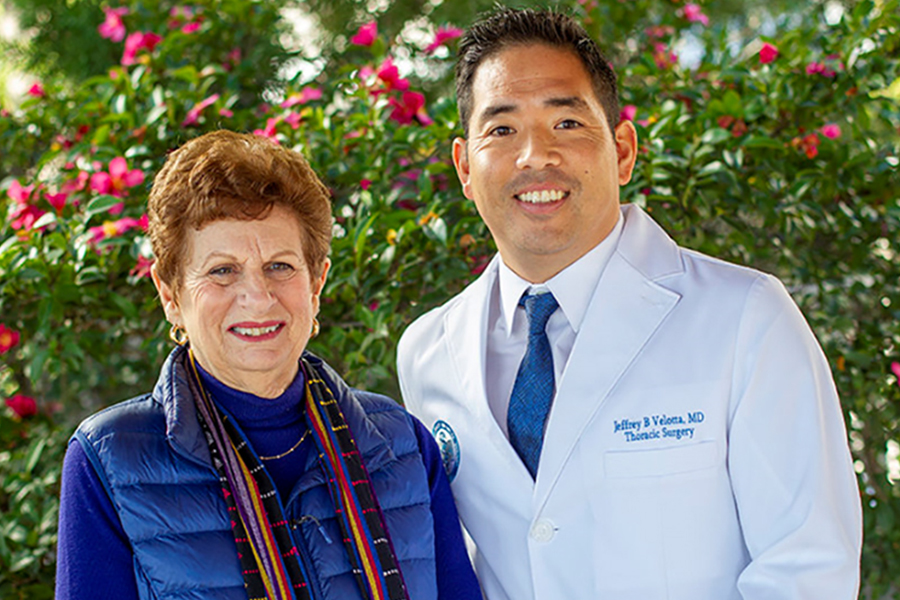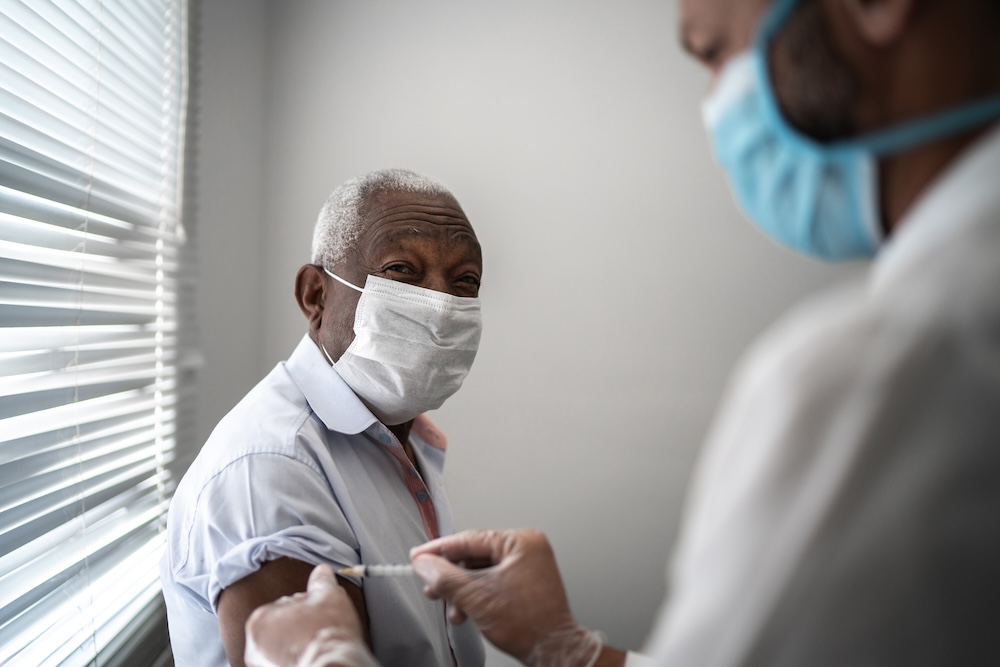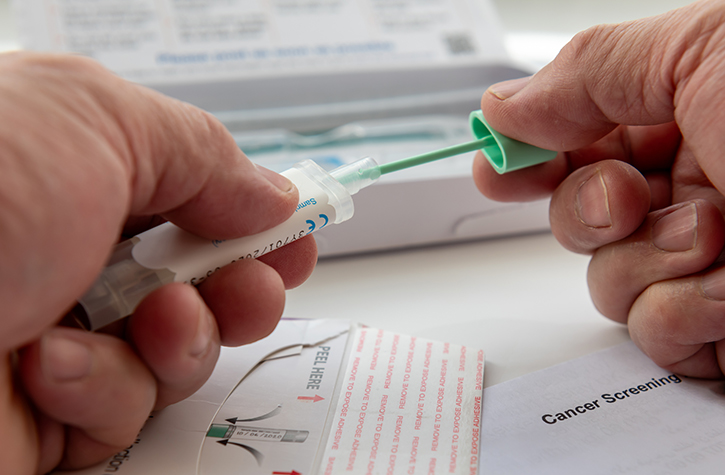February 5, 2020
Compassionate, regionalized care from Kaiser Permanente helped Marlene Delfino overcome esophageal cancer.
It had been months of not being able to swallow food well. But Marlene Delfino, 81, of San Rafael, California, thought it was just acid reflux. In the fall of 2018, she went to her primary care physician, Karen Bayle, MD, an internist for The Permanente Medical Group (TPMG) in San Rafael, who recommended a reflux medication. When it didn’t seem to make a difference, Dr. Bayle quickly referred Delfino to a TPMG gastroenterologist, Sheba Vohra, MD, for an endoscopy to take a closer look. And that’s when they found it: a tumor in her esophagus.
Immediately came the PET scan and endoscopic ultrasound to see if the cancer had spread, which it hadn’t. But a later biopsy confirmed stage 3 esophageal cancer. Delfino consulted with one of the TPMG oncologists at the Kaiser Permanente San Rafael Medical Center, Jerome Kim, MD, who recommended weeks of chemotherapy and radiation, before any surgery, to shrink the tumor.
“It was all rather sudden and terrifying,” recalled Delfino. “My husband has dementia, and I’m his main caretaker. I thought, ‘Who is going to take care of the both of us?’”
But then Delfino spoke to Jeffrey Velotta, MD, a TPMG thoracic surgeon at the Kaiser Permanente Oakland Medical Center, the region’s largest of 3 Specialty Care Centers for thoracic surgery.
“Dr. Velotta made me feel so much better,” she said. “He said the surgery was minimally invasive and that with special protocols I wouldn’t be in the hospital for that long, and I could quickly return to my normal life.”
Quick Recovery
Delfino is one of 375 patients who have benefited from Kaiser Permanente Northern California’s shift in 2014 to manage all esophageal cancer surgeries in designated Specialty Care Centers — located in Oakland, South Sacramento, and Santa Clara. Kaiser Permanente Northern California is one of the first health care organizations in the country to implement this regionalized approach.
Recent research led by Dr. Velotta showed that regionalizing esophagectomies at three designated Kaiser Permanente Northern California centers within its integrated system reduced the number of days patients spent in the hospital, decreased intensive care use, and reduced post-operative complications. At the same time, regionalization resulted in increased use of minimally invasive, video-assisted thoracoscopic surgery, and the average operating time for these types of surgeries decreased.
‘Like Family’
Hours after her surgery, Delfino was encouraged to get up and start walking, which is part of the Enhanced Recovery After Surgery (ERAS) program, a proven method to reduce complications such as blood clots and muscle atrophy, and a key part of the centers’ philosophy.
In addition, she was encouraged to start drinking liquids right away.
“Historically, after an esophagectomy, a patient couldn’t eat or drink for a week. But our research has proven that it’s not necessary to do that,” said Dr. Velotta. “Our protocol is if patients are tolerating liquids right away, they can go home after only 2 nights in the hospital. The national average is 10 days.”
After Delfino went home, she drank clear liquids; a few days later she graduated to apple sauce and jello; by a full week after her surgery, Delfino was able to resume a fully normal diet.
Delfino has check-ups with Dr. Velotta every 6 months and is back to enjoying volunteer work, a gardening club, and spending quality time with her husband.
“I am grateful to Dr. Velotta for making this experience less scary,” she said. “The whole team at Kaiser Permanente treated me like family. I feel so fortunate.”
This story originally appeared in Look Inside KP






